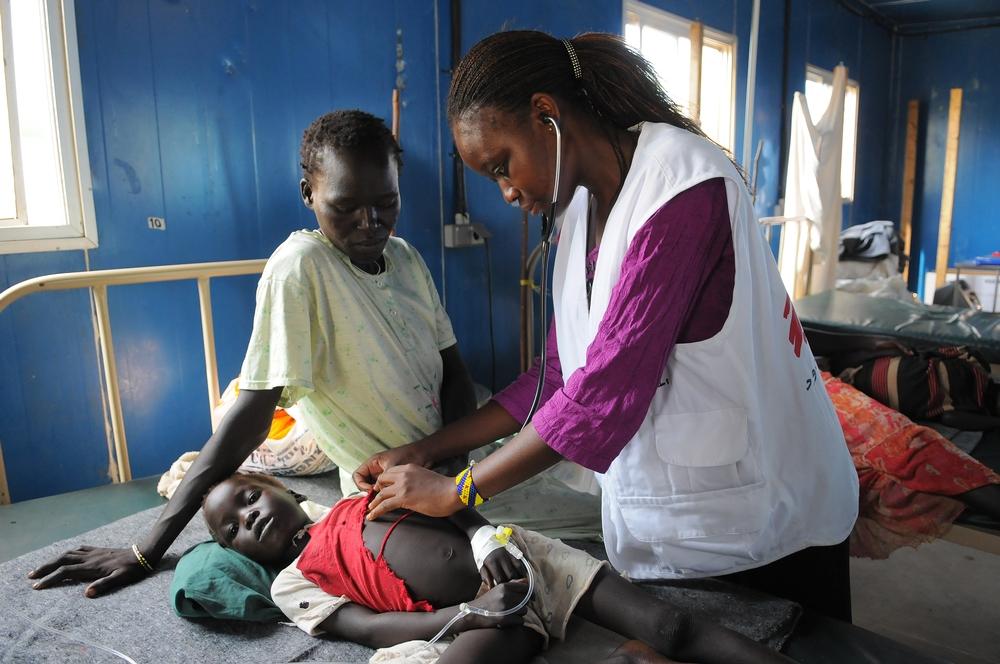Juba, 28 September 2021 – A new project aimed at reaching people cut off from medical care in Maban county, in South Sudan’s Upper Nile state, has been launched by international medical organisation Médecins Sans Frontières/Doctors Without Borders (MSF).
MSF is adapting its approach in the region, handing over responsibility for its clinic in Doro refugee camp to the non-profit organisation Relief International on 30 September and focusing instead on running mobile clinics in remote and hard-to-reach areas. At the same time, MSF will continue providing support to Bunj state hospital and will be ready to respond to emergencies in the region.
MSF teams have already started running mobile clinics in Mahalia and Pumki, two of the county’s most remote areas, with the aim of taking basic medical care to people for whom it is otherwise out of reach, due to long distances, difficult geographical terrain and intermittent violent clashes.
Handing over our clinic in Doro doesn’t mean putting an end to our activities in Maban County,” says Azaad Alocco, MSF head of mission in South Sudan. “With other organisations able to provide medical assistance to people in the camp, MSF has decided to focus on a more mobile and agile approach, in order to ensure that, even in the harder-to-reach areas, people can access free quality healthcare and that our teams can respond promptly to health emergencies.
For the past 10 years, MSF teams in Doro refugee camp have provided comprehensive healthcare, including outpatient consultations, treatment for severe acute malnutrition, maternal healthcare and neonatal care to people fleeing violence in Sudan’s Blue Nile state and to people displaced from their homes elsewhere in Maban county.
Over the years, hundreds of qualified staff, both South Sudanese and international, have worked for MSF in Maban county, providing medical services to thousands of people living in four camps (Doro, Batil, Gendrassa and Jamam). Since 2013, MSF has also provided medical care to host communities through its outpatient activities in Bunj state hospital. Meanwhile MSF water and sanitation teams have helped supply water to the area’s population, including managing boreholes and hand pumps.
In the past 10 years, MSF has carried out over one million outpatient consultations, assisted more than 21,700 deliveries, treated around 200,000 patients for malaria and almost 4,500 children for malnutrition,” says Mathias Goemaere, MSF field coordinator in Maban county. “Although our work over the past decade in Maban has not been without its challenges, we always appreciated working with the local population and with the Ministry of Health and other partners. In the months ahead, we welcome their support in ensuring we are able to reach all communities in need through our new medical outreach programme.
MSF continues to adapt its response based on people’s changing health and humanitarian needs, as well as on the resources it has available. MSF is committed to remain one of the active providers of emergency healthcare across Maban county and in South Sudan as a whole.
MSF teams have been working in Maban county since 2011, providing healthcare to refugees and displaced people in the camps at Doro, Batil, Gendrassa and Jamam, and to host communities at Bunj state hospital. MSF has been working in South Sudan since 1983 and currently operates 13 projects countrywide,
providing medical assistance to people affected by conflict, epidemics, disasters and exclusion from healthcare. Our actions are guided by medical ethics and the principles of impartiality, independence and neutrality.
